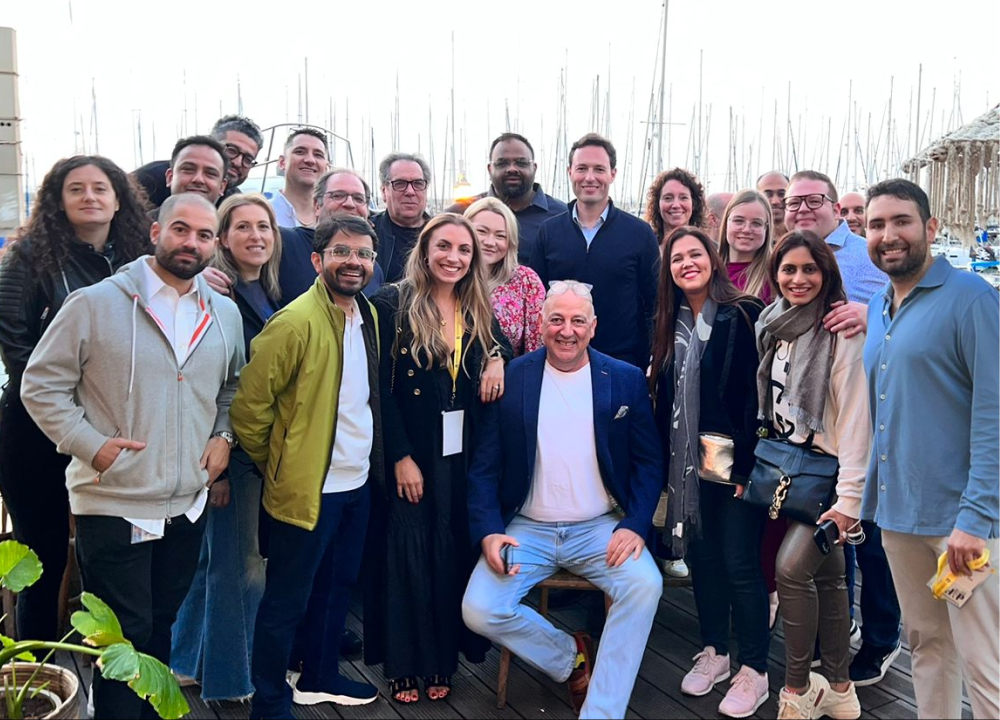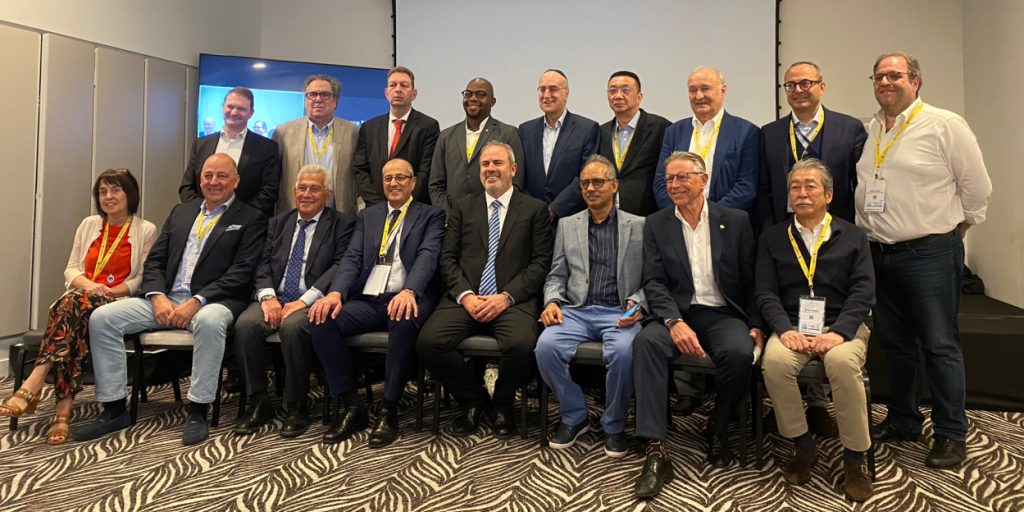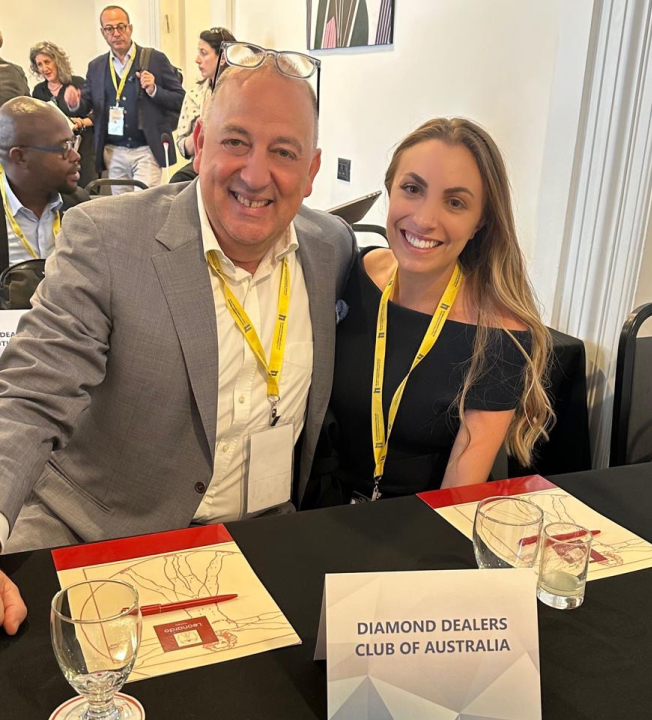
I may have written about this before, but now following COVID, its relevance is even greater. I know what I am about to say sounds cliché to some, but I can’t emphasise my next comment’s critical nature enough. Being involved in industry organisations and having the opportunity to participate in international events is like doing a PhD or Masters in the diamond jewellery industry.
In the last 25 years, I have travelled and partaken in many international trade events. Why? The obvious answer is the networking, the ideas, the camaraderie, the making of new friends and the access to see things that few would ever see in their lifetime. One morning at breakfast, I sat with one of the most renowned jewellers in Australia, regaling him with stories of my recent trip with the Young Diamantaires to India and the World Congress in Israel. To say he was suffering a severe case of FOMO (fear of missing out) is an understatement. He asked me to promise to include him in these future industry travels.
Some of us are gregarious and some focus on what we know and don’t look left or right. The problem with that approach is that you live your life in a reactive capacity. You are potentially missing out on the insights into what is about to happen in your marketplace, and hence you don’t give yourself the time to prepare, adapt and hopefully take advantage of what is about to come.
Our industry is going through a massive transformation, and if you don’t step back and view it in its entirety, you will be on the back foot. Like so many other businesses of the past, you will be asking yourself what happened, and sadly your story will be one of those who blame everybody else, but in reality, you just didn’t have enough time to adapt. Making the time and putting in the effort to participate in an international organisation means that you have access to decision-makers and innovators worldwide. Access to information, knowledge, new products and tech sources is gold, plain and simple.

The wonderful change I am seeing is this amazing knowledge sharing without the fear that everyone is your competitor. The previous generation of the Australian diamond and jewellery industry, and unfortunately, many such colleagues still hold these views, having missed countless opportunities from this obsession that the business down the road is a mortal enemy.
As chairman of the promotion committee of the World Federation of Diamond Bourses (WFDB) and Alan Cohen, chairman of the trade committee, we brought up the topic of the Gemological Institute of America (GIA) no longer providing physical certificates. 60 people from around the world participated in our discussions, and it was clear that the GIA did not do its homework. The GIA perceived their customer as the diamond manufacturer who paid for the original certificate. They were wrong. Their customer is the diamond jewellery retailer who uses the GIA certificate as a daily tool to sell diamonds. There is no doubt that there will be a transition to greater use of digital certification in time. However, that time is not now.
Our views and opinions were relayed to the leaders of the GIA, as were those of multiple other industry groups. The results led to the GIA reintroducing the diamond certification in physical form. What were some of the highlights that we learnt? There were extensive discussions about the significant percentage of engagement ring sales using lab-grown diamonds. Coupled with that was the massive price drop, which continued in lab-grown diamonds. It is perceived that, at a certain point, it becomes more of a fashion item but that’s yet to be seen. In my opinion, I don’t believe DeBeers anticipated the speed and acceptance of the lab-grown diamond and the massive chunk it has carved out of the engagement ring segment.
In line with my previous article in the March edition of Jewellery World, the conversation around ethical and sustainable diamonds and the importance of transparency and traceability in the supply chain highlighted the initiatives taken by DeBeers with a massive investment in Tracr and their blockchain solution. Significant attention was given to the impact of technology on our industry, and it was repeated time and time again that if one does not embrace innovation to remain competitive as an industry and on an individual level, our businesses and market share of the luxury pie will be lost.

On a lighter note, at the International Diamond Week Conference we received a lecture from a gentleman named Arey Lightstone, whose position was one of the lead negotiators of the Abraham Accords. This was one of the most momentous peace treaties signed between Israel and its Arabian neighbours, specifically in the UAE. The accord was signed three years ago, and since then, just in diamonds alone, Israel and Dubai have traded something in the vicinity of $4 billion USD. Peace brings business. Good business improves the quality of life for everyone. The story that Arey shared with us was that he and his wife had a philosophy that opportunities present themselves, but if the timing is not right, you let them go. He shared with us how his daughter almost died, and when they went home, he received a phone call from President Trump’s chief of staff asking if he would become a lead negotiator in the Abraham Accords. When he discussed this significant opportunity with his wife, she told them he was crazy, that their daughter had almost died, and now was not the right time.
Imagine potentially being part of one of the greatest peace treaties ever signed and part of history and knowing that you will need to say no to participating because the timing was wrong for you. That night, at three in the morning, his wife threw a pillow at him, told him to wake up, and said, “Our philosophy is wrong. When opportunities present themselves, you need to make the time”. Arey became one of the chief negotiators, and the Abraham Accords were ratified and signed. In his words, there were nine events that he experienced during the negotiations, and each one of them is worthy of a book on its own.
So, my colleagues, participating in international conferences, congresses and trade shows are an opportunity. It’s easy to say “I’m busy”, “I don’t have the time” or “now is not the right time.” Just ask yourself one question, “Am I going to live my life thinking, ‘I really should have’?”

Trade well,
Rami Baron
President, Diamond Dealers Club Australia.
rami@ddca.org.au
Further reading: